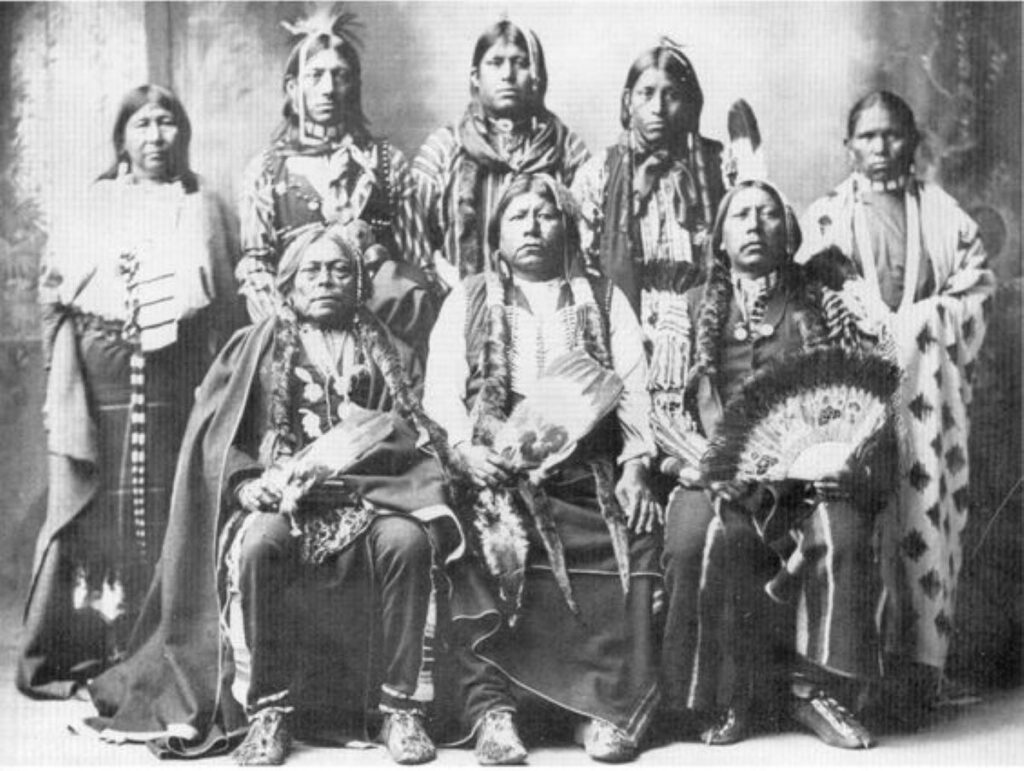Almost 140 years after being expelled from Texas, the Tonkawa tribe has returned to purchase Sugarloaf Mountain. This sacred site in Milam County, northeast of Austin, holds significance in the tribe’s creation story.
“We’re home,” expressed Tonkawa President Russ Martin during a small ceremony on December 12, celebrating the recovery of 60 acres of the tribe’s ancestral lands in Central Texas.
Reflecting on the experience of reaching the top of Sugarloaf Mountain, he shared, “I was overwhelmed. I’m not that spiritual a person, but that experience was spiritual. We’re glad to be home in Texas.”
The acquisition of the land for a historical park marks a significant step in a broader movement, particularly among Texas tribes that were expelled or nearly exterminated during the 19th century.
ALSO READ: Man Unearths 7-Carat Diamond at Arkansas State Park, Names it After His Fiancée
Sugarloaf Mountain is a prominent, conical hill made of red sandstone, providing an overlook of the prairies and bottomlands. The Little and Brazos Rivers converge just downstream of this landmark.
In the floodplains of those rivers, there once existed a large village known as Ranchería Grande, home to several cooperative tribes. During the 1700s, this village became one of the most populated areas in Texas. The Spanish, recognizing the dense Indigenous presence, established three short-lived missions in what is now Milam County.
POLL — Should Public Schools Include Critical Race Theory and Sex Education in Their Curriculum?
To the Tonkawa, Sugarloaf Mountain was known as Red Mountain or “Natan Samox” in the Tonkawa language. Historically, the Spanish referred to it as Turtle Mountain or “La Tortuga,” according to one historian.
Sugarloaf Mountain was a sentinel marker for the Spanish traveling along the braided Camino Real de los Tejas. This route followed trails established by Native Americans, stretching from the Rio Grande to northwestern Louisiana.
In 1884, the Tonkawa, formerly known as “the best friends of the Texans,” experienced forced removal from Fort Griffin in northwestern Texas. This relocation marked their “Trail of Tears,” leading them to successive reservations in Oklahoma.
Before this, they had undergone similar moves in 1855 and 1859. By the late 20th century, rumors suggested that the Tonkawa had disappeared entirely.
ALSO READ: Minnesota Pharmacist Faces Discrimination Charges for Refusing Emergency Contraception Prescription
Contrary to the rumors, the Tonkawa had not disappeared. While their numbers declined for a period, the tribe, now consisting of 950 citizens, currently manages a reservation. In the town of Tonkawa, situated on the Salt Fork of the Arkansas River near the Oklahoma-Kansas border, the tribe operates a casino, hotel, food court, movie theater, bowling alley, and steakhouse.
On December 12, the Herzog family, owners of Sugarloaf since the 1990s, gathered with three Tonkawa leaders at their home, which provides a magnificent view of the mountain. Official papers were exchanged, and the 60-acre footprint of the mountain was sold for what was deemed a “reasonable market value.”
In the coming days, the nonprofit El Camino Real de los Tejas National Historic Trail Association will oversee the management of the land and its improvements. The initial steps will involve research and archaeology, paving the way for establishing a new park. This park will grant the public daily access to the mountain, featuring interpretive displays and educational activities.
You Might Also Like:
Mississippi Woman Faces Murder Charge for Allegedly Hiding Her Son’s Body Behind a Wall
US Forces Kill Three Al-Shabab Terrorists in Southern Somalia Airstrike
Pro-Palestinian Protesters Interrupt Biden at Abortion Rights Campaign Rally
“This Is Not Over!” Texas Slams Court’s Ruling Allowing Biden to Remove Razor Wire From Border
